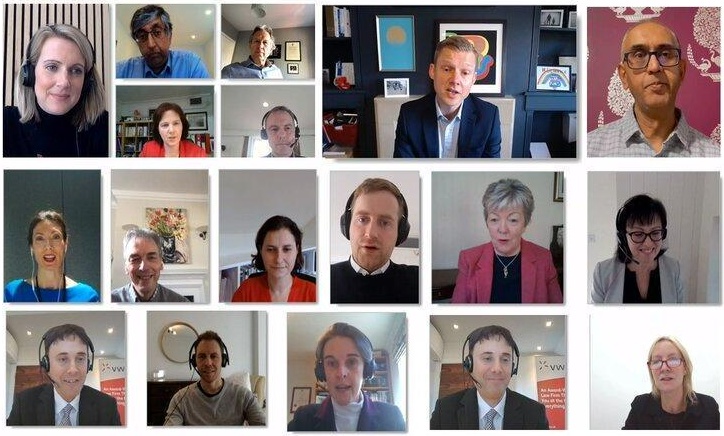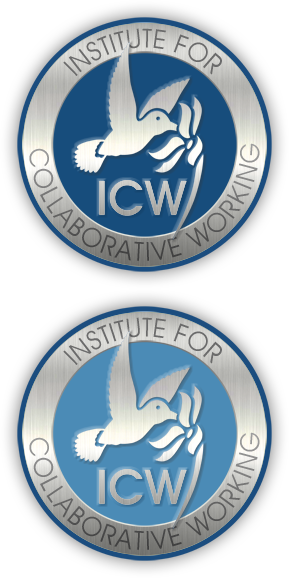 What an 18 months it has been! The UK's life sciences sector has come into its own leading society out of the pandemic, with tremendous opportunities through innovation and collaboration which can be applied for a better future for all.
What an 18 months it has been! The UK's life sciences sector has come into its own leading society out of the pandemic, with tremendous opportunities through innovation and collaboration which can be applied for a better future for all.
The UK has taken the lead with the Oxford AstraZeneca vaccine, the MHRA being the first regulator to approve a COVID-19 vaccine, vaccinating the first patient, global-leading genomic sequencing, and use of healthcare data that has established treatments saving over a million lives around the world. It is now about bottling the advances that have been made and applying them to the other great health challenges, for the good of all.
Turning Policies Into Action
Speaking at this year's 12th Pharmaceutical Industry Network Group (PING) Conference organised by VWV law firm's specialist Pharmaceuticals and Life Sciences sector, and held virtually in conjunction with IQVIA and supported by Hertfordshire Local Enterprise Partnership, Pfizer UK's Country Manager and ABPI President, Ben Osborn, shared his inspirational journey and vision around innovation and collaboration over the last two years. Ben emphasised the importance of having a shared mission and direction, healthcare equitable access, understanding the concept of risk and the need to ensure that science is valued at all levels. In reality, innovation is "all about bringing together science, data and technology" whilst keeping the patient at the heart of it all. Ben stated that "there has never been a more exciting time for life sciences and the opportunity to bring breakthroughs to change patients' lives. The Government's 'Life Sciences Vision' gives a bold ambition, so we must all now partner and translate words into meaningful action."
The UK Government's 'Life Sciences Vision' published this year provides a 10 year blueprint to act as the key driver for sector growth in the 21st century and keep the UK ahead of the field. The Office for Life Sciences Head of Strategy, Alex Mclaughlin, explained that "the Life Sciences Vision sets out how through working in partnership, Government, NHS, the Sector and academia can create real value for industry and better treatments and technologies for patients. It's an exciting time for life sciences, and the UK is uniquely placed to innovate and lead the way. The Government is determined to work with partners from right across the sector to realise the ambitions of the Vision."
Building on the NHS Long Term Plan with a focus on population health and working with Integrated Care Systems, the NHS can be a driver for innovation. The Innovative Medicines Fund is another committed Government manifesto to fast-track promising new drugs. Meanwhile, repurposing medicines, as was seen with the discovery within the NHS of the use of the steroid dexamethasone to treat COVID-19 patients during the pandemic, shows what opportunities there are. These are areas that Claire Foreman, Director of Medicines Policy and Strategy at NHS England and Improvement, will be focusing on, to explore what can be done through innovation and also through working with what we already have, thus improving the life sciences sector's delivery of treatments for patients.
Not only is the Government focusing on UK life sciences plans and policies, it is also prioritising rolling over existing international agreements as well as entering into new ones. Deals with Indo-Pacific life sciences relations including Singapore, Vietnam, Canada and Mexico are being prioritised, while new post-Brexit agreements with Australia and New Zealand are now in place. Andrew Howard, Deputy Director for Trade, Regulation and Analysis at The Office for Life Sciences, talked about the UK's priorities in trade deals, as well as the challenges and opportunities for Britain. He mentioned how "the last few years have been a time of great change, but there are many opportunities for Global Britain in life sciences. The UK has a pioneering regulator, leading academia, a single healthcare system and a strong biopharma sector, as well as a coherent vision for the sector that supports exciting new specialist areas. Having built on existing global relationships, we're now fully focused on nurturing new ones."
Cultivating Scientific Collaboration
Collaborations have been important for some time, but the vaccination roll-out has shown how collaborations have come of age. There are more happening, with bigger plans and larger projects. Collaboration is key to accelerating the innovations, and allowing people to benefit from each others' strengths by working together. Relationships are key to a successful collaboration. All stakeholders involved must consider the importance of generosity, have a clear structure and code of practice, and shared vision/values, with an ability to trust and be transparent in sharing knowledge and data.
CEO of the Institute for Collaborative Working, Claire Ward, stated that "the value of structured collaborative working is having a plan that can support organisations to build sustainable relationships. During COVID-19, the pharmaceutical sector has shown the value of working together; the task now is to embed attitudes and behaviours that can sustain long term collaborative relationships across all parts of the industry."
From an academia perspective, Pro-Vice Chancellor for Innovation at University of Oxford, Chas Bountra OBE, expressed that "we're facing many global healthcare challenges. No one institution has all the necessary expertise or infrastructure or resources. The only way we are going to tackle these is through collaboration - collaboration amongst universities, with industry, with governments, with regulators, with policy makers and with other countries."
GlaxoSmithKline's Director Academic Liaison, Malcolm Skingle CBE, also mentioned that "I've seen for years that collaborations are the way to go for pharma - whether with others in pharma or with academia. The pandemic has shown the importance of collaborations. The Vaccine Taskforce achieved their incredible feats through collaborating. Working together to get the best skills together has never been more important."
VWV's Corporate Partner, Richard Phillips, stated "What a great panel session at the PING 2021 Conference on collaboration with inciteful views on how far it has come, with mindset and attitude instrumental in making collaborative working a success. Getting the contract structure right are tremendously important, though, to ensure parties are clear on their roles and objectives and to plan for the future at the outset. There were some great examples of how effective collaboration can be."
The Role of Health Data in Drug Discovery
There has been increased importance placed on genomic and real-world health data in the life sciences sector and working creatively together to manage the data in the most effective and efficient way. The diversity of the data is a key challenge, whilst at the same time decreasing health inequalities. The sector needs to get smarter by looking to work with and check cohorts in other countries globally. It is important to gain and maintain the trust and transparency with all involved and bring the public along to help with health data outcomes. UK Biobank has achieved tremendous things by being a global leader in genomic sequencing, and Our Future Health is a good example of an exciting UK health research programme, to bring people together to develop new ways to detect, prevent and treat diseases.
Professor Joanne Hackett, Head of Genomic and Precision Medicine at IQVIA, highlighted that "the future for data is a game changer - both genomic and healthcare data. However, the key will be making sure the data is well curated in order to achieve the potential."
Health Data Research UK's CEO, Caroline Cake, explained how "health data research has enabled some of the most important discoveries about COVID-19 and been a key component of the UK's understanding of and response to the pandemic. There is now a fantastic opportunity to build on this momentum and collaboration in the sector to accelerate our work, making large scale datasets safely available for research, to enable discoveries across the spectrum of health conditions, from cancer to rare diseases."
Founder & CEO of Genomics PLC, Sir Peter Donnelly, commented how "it's 21 years this year since the announcement of the completion of the draft human genome. I'm now really excited that the field has matured so it can have a major impact on drug discovery and healthcare. It's great to see the UK at the forefront of these opportunities."
Regulatory
The COVID-19 vaccine regulators led by the UK's Medicines and Healthcare products Regulatory Agency (MHRA), have also worked in innovative ways to approve medicines much quicker than normal, while not compromising on assessing safety and efficacy. The MHRA is continuing to build on adopting innovation and be seen as a world leading regulator. Dr Kirsty Wydenbach, Expert Medical Assessor at the MHRA, stressed that "the MHRA ambition is about putting patients first, becoming a truly world-leading, enabling regulator and protecting public health through excellence in regulation and science. Support for innovation is a key part of that ambition. We want to hear from researchers and developers early so we can help them stay on track, and so we can learn and become an even more industry-friendly regulator."
Summing up the PING 2021
IQVIA's Vice President, Strategic Planning Northern Europe, Angela McFarlane, stated:
"What a conference. It's left us in no doubt that our next mission as a life science community is to collaborate on the seven 'Healthcare Missions' in the Government Life Sciences Vision, combining the 'best of British' - our unique health data, our world-leading genomics, transformative real world research and innovation in research. If we embrace a mission-led culture in medicines discovery and access, with collaboration being the new norm the UK could become the life sciences."
VWV's PING Chair and Partner and Head of Pharmaceuticals and Life Sciences sector, Paul Gershlick, concluded:
"The UK has led the way in so many areas through the pandemic through innovation and collaboration. With a forward-looking life sciences Vision, which gives a clear blueprint for continuing to do that and take a lead in addressing the other great health challenges, including through the strengths of the UK's world class academia, life sciences industry, regulator, and financial centre, Global Britain can continue to be at the hub of leading the way, including in the exciting opportunities through use of health and genomic data."
Nitin Dahad, Hertfordshire LEP Board Member and Chair, Enterprise and Innovation Board, said:
"Hertfordshire Local Enterprise Partnership is very proud of its long association with this event - it sends out a clear message that Hertfordshire and the UK is a very attractive place for our diverse life sciences industry to grow. The scale of that global ambition and the clear vision for the future was evidenced in today's hugely exciting programme. We are proud to have played our part in bring considerable investment into the county to support the growth of its world-class cell and gene cluster which was celebrated today."
For more information about the Pharmaceutical Industry Network Group (PING) and Pharmaceuticals and Life Sciences Law, please contact Paul Gershlick on 07795 570 072 or at pgershlick@vwv.co.uk.

